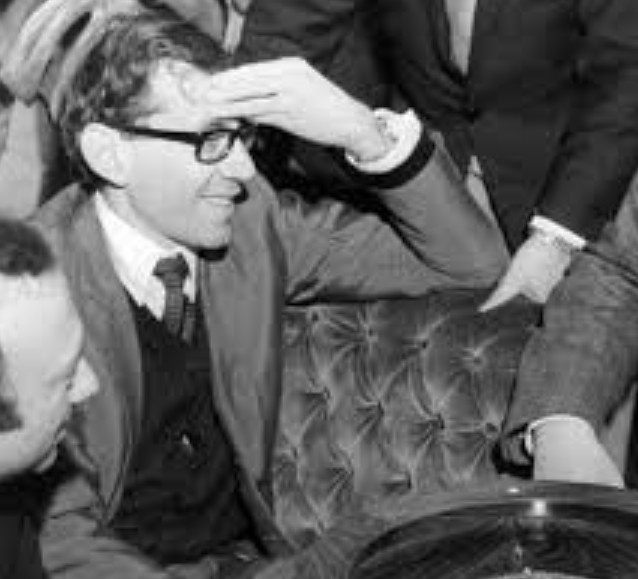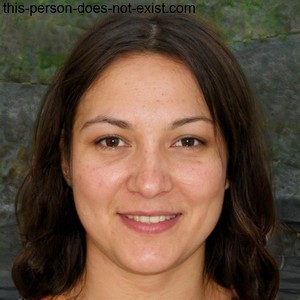
Richard Wilhelm Jarecki
Childhood
Born in Stettin, Germany (now Szczecin, Poland), on December 1, 1931, Richard Jarecki experienced the upheaval of pre-war Europe firsthand. His family, of Jewish descent, fled Nazi Germany in the late 1930s and emigrated to the United States, settling in Asbury Park, New Jersey. He completed his secondary education at Asbury Park High School before pursuing higher education at Duke University. A notable aspect of his academic journey was his return to his native Germany to earn a medical degree from Heidelberg University. During his residency at Jersey Shore Medical Center, he married Carol Fuhse, a nursing student. Subsequently, the couple relocated to Germany, where Jarecki continued his studies at the University of Heidelberg – a period that also marked the beginning of his ventures into the world of casinos.
Career
Jarecki's career took an unconventional turn as he transitioned from the medical field to professional gambling. In the 1960s and 1970s, he embarked on a systematic endeavor to identify biases in roulette wheels across various European casinos. This was not a pursuit of luck, but rather a meticulous data collection and analysis exercise. Jarecki, often working in collaboration with his wife Carol and others, dedicated extensive periods, sometimes exceeding a month, to meticulously record the outcomes of tens of thousands of roulette spins.
His analysis revealed a crucial insight: due to minor imperfections, wear and tear, and manufacturing variations, certain roulette wheels exhibited a subtle but predictable bias, making specific numbers more likely to occur. While he reportedly used a cover story about employing a computer at the University of London to decipher these patterns, his primary method involved diligent observation and statistical analysis.
Jarecki strategically focused on European casinos, which utilized roulette wheels with 37 numbers (single zero), unlike the predominantly American 38-slot wheels (double zero), offering slightly better odds for the player. Furthermore, he perceived European casinos as less inclined to halt a gambler's winning streak abruptly. His success at establishments like the Sanremo Casino led its managing director to label him "a menace to every casino in Europe," expressing a desire for his permanent absence. Even when casinos attempted to counter his strategy by switching wheels, Jarecki's keen eye allowed him to recognize the unique characteristics of individual wheels. Ultimately, the casinos adapted by more frequently changing roulette wheels and collaborating with manufacturers to produce wheels with tighter tolerances, minimizing exploitable imperfections.
Following his significant winnings, estimated to be over $1.2 million, Jarecki returned to the United States in the mid-1970s. He then ventured into commodities trading, dealing primarily in gold and silver. His interest in gambling persisted, as he occasionally played blackjack and roulette in the burgeoning casino scene of Atlantic City, New Jersey, and Las Vegas.
Personal life
Richard Jarecki was married to Carol Fuhse, a trained nurse. Together, they had three children: two daughters and a son. In his later years, Jarecki resided in Manila, Philippines, for over two decades. His brother, Henry Jarecki, also pursued a career in medicine before achieving considerable financial success as a commodities trader, becoming a billionaire.
Revenue
Richard Jarecki reportedly won over $1.2 million from European casinos during the 1960s and 1970s by exploiting biases in roulette wheels.
Interesting facts
Jarecki held a medical degree and initially pursued a career as a physician before his successful foray into professional gambling.
He and his family escaped Nazi Germany in the late 1930s.
Despite his cover story, his method relied on meticulous observation and statistical analysis of roulette spins rather than sophisticated technology.
European casinos with single-zero roulette wheels were his primary targets.
He possessed a remarkable ability to recognize individual roulette wheels even after they were switched.
Legacy
Richard Jarecki's legacy lies in his demonstration of how a seemingly random game of chance could be approached with a scientific and analytical mindset to gain a significant advantage. He is remembered as a gambler who won not through luck, but through diligent research and the identification of exploitable physical flaws. His story serves as a fascinating example of human ingenuity applied to the world of casinos, highlighting the constant interplay between gamblers seeking an edge and casinos striving to maintain the integrity and randomness of their games.
Frequently asked Questions
Richard Jarecki won by meticulously tracking thousands of roulette spins and identifying subtle physical biases in the wheels that made certain numbers more likely to occur. He then strategically bet on these numbers.
While Jarecki reportedly used a cover story about using a computer at the University of London, his primary method involved careful observation and statistical analysis of past results.
European casinos primarily used single-zero roulette wheels, which offer slightly better odds for the player compared to the double-zero wheels prevalent in the United States. Additionally, Jarecki believed European casinos were less likely to ban successful players abruptly.
Casinos attempted to ban Jarecki from their premises and, recognizing his methods, began switching roulette wheels more frequently and worked with manufacturers to create wheels with tighter tolerances and fewer imperfections.
After winning over $1.2 million, Jarecki returned to the United States and became a commodities trader, dealing in gold and silver. He also occasionally played blackjack and roulette in Atlantic City and Las Vegas.












